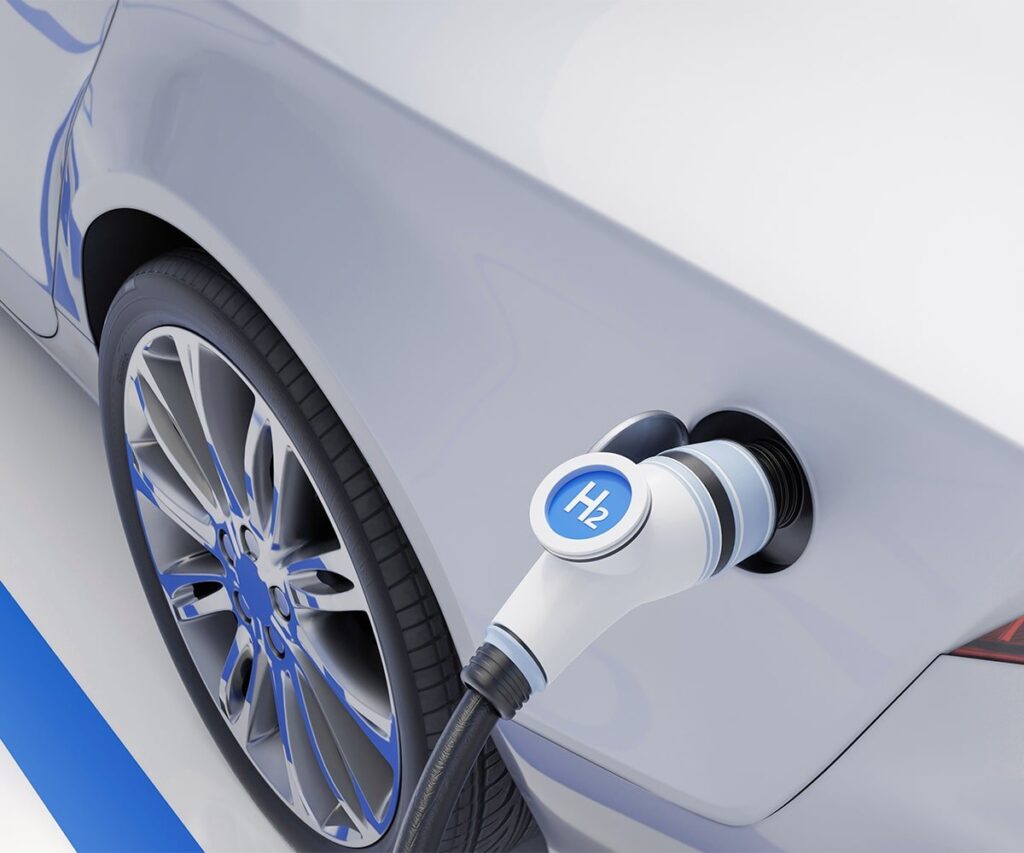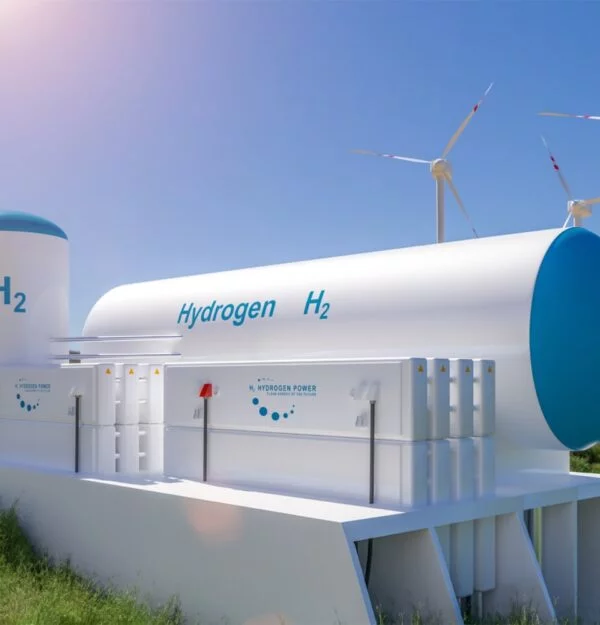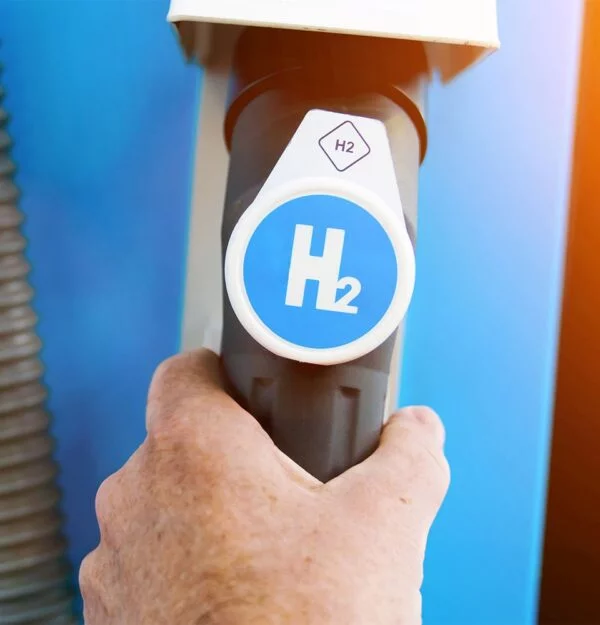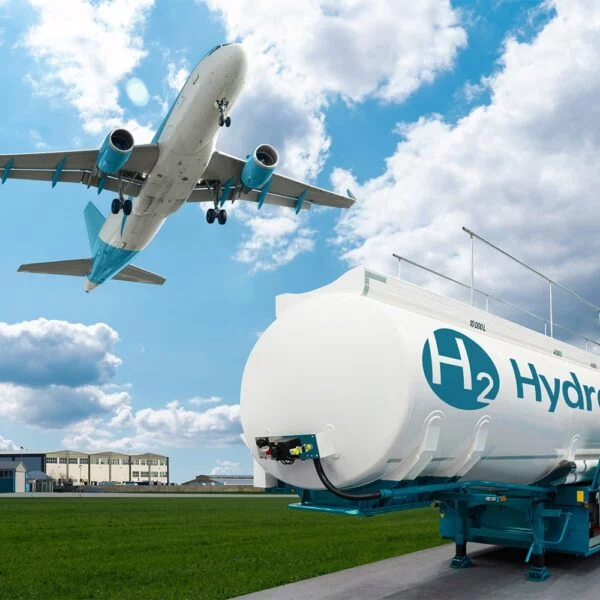Project Name :
Industrial Hydrogen Generator
Client :
Steve Smith
Category :
Vehicles
Location :
Envanto HQ, Los Angeles, USA
Year :
2023
Green Energy
An Industrial Hydrogen Generator, also known as a hydrogen generator or water electrolysis system, is a device used to produce hydrogen gas on-site for industrial applications. The most common method employed by industrial hydrogen generators is electrolysis, which involves splitting water (H2O) into hydrogen (H2) and oxygen (O2) using an electric current.Here's how it generally works:Electrolysis: Water is fed into the electrolysis system, which contains electrodes submerged in water. When an electric current is passed through the water, it causes electrolysis, splitting water molecules into hydrogen and oxygen gas.Gas Separation: The hydrogen and oxygen gases produced during electrolysis are separated using various methods. Typically, the gases are collected separately, with the hydrogen being stored for use in industrial processes or other applications.Purification: The hydrogen gas may undergo purification processes to remove impurities, ensuring its quality for use in various applications.Industrial hydrogen generators are used in a wide range of industries, including:Chemical Industry: Hydrogen is used as a feedstock in various chemical processes, such as the production of ammonia, methanol, and other chemicals.Petroleum Refining: Hydrogen is used in hydrocracking and hydrotreating processes to upgrade crude oil into refined products, such as gasoline and diesel.Metallurgy: Hydrogen is used in the production of metals and alloys, such as in hydrogenation processes for refining metals and in the reduction of ores.Electronics and Semiconductor Manufacturing: Hydrogen is used as a carrier gas and reducing agent in processes such as epitaxial growth and wafer cleaning.Food and Beverage Industry: Hydrogen is used for hydrogenation processes in the food industry, such as the hydrogenation of oils.Industrial hydrogen generators offer several advantages, including on-site production, scalability, and the ability to produce hydrogen using renewable energy sources, leading to reduced greenhouse gas emissions compared to traditional hydrogen production methods such as steam methane reforming.
At vero eos et accusamus et iusto odio dignissimos ducimus qui blanditiis praesentium voluptatum deleniti atque corrupti quos dolores et quas molestias excepturi sint occaecati cupiditate non provident, similique sunt in culpa qui officia deserunt mollitia animi, id est laborum et dolorum fuga.



THERMAL PROCESSES
At vero eos et accusamus et iusto odio dignissimos ducimus qui blanditiis praesentium voluptatum deleniti atque corrupti quos dolores et quas molestias excepturi sint occaecati cupiditate non provident.
Safety
Experienced project engineers with a focus on safety and speed of execution.
Reliability
Experienced project engineers with a focus on safety and speed of execution.
Experienced
Experienced project engineers with a focus on safety and speed of execution.
OUR BENEFITS
Industrial hydrogen generators offer a variety of benefits for businesses and industries that rely on hydrogen for their processes. Some of these benefits include:On-site Production: Industrial hydrogen generators allow businesses to produce hydrogen gas directly at their facilities, eliminating the need for transportation and storage of large quantities of hydrogen. This can lead to cost savings and increased operational efficiency.Cost Savings: On-site production of hydrogen can be more cost-effective compared to purchasing hydrogen from external suppliers, especially when considering factors such as transportation costs and potential price fluctuations in the hydrogen market.Scalability: Industrial hydrogen generators can be scaled to meet the specific hydrogen production needs of a business. Whether a company requires a small amount of hydrogen for a laboratory setting or large quantities for industrial processes, hydrogen generators can be tailored to suit different production volumes.Environmental Benefits: Many industrial hydrogen generators utilize electrolysis, which can be powered by renewable energy sources such as solar or wind power. This enables businesses to produce hydrogen with lower carbon emissions compared to traditional methods like steam methane reforming, thereby contributing to sustainability goals and reducing their carbon footprint.Reliability and Independence: By having their own hydrogen production capabilities on-site, businesses can reduce their dependence on external suppliers and mitigate potential supply chain disruptions. This can enhance reliability and security of hydrogen supply for critical industrial processes.Customization and Integration: Industrial hydrogen generators can be customized and integrated into existing industrial processes to meet specific requirements. This flexibility allows businesses to optimize their production processes and maximize efficiency.Safety: On-site production of hydrogen can improve safety by reducing the need for transportation and handling of compressed hydrogen gas cylinders, which can pose certain risks. Additionally, modern hydrogen generator systems incorporate safety features and protocols to ensure safe operation.Overall, industrial hydrogen generators offer a range of benefits including cost savings, environmental sustainability, reliability, and flexibility, making them a valuable investment for businesses across various industries.






